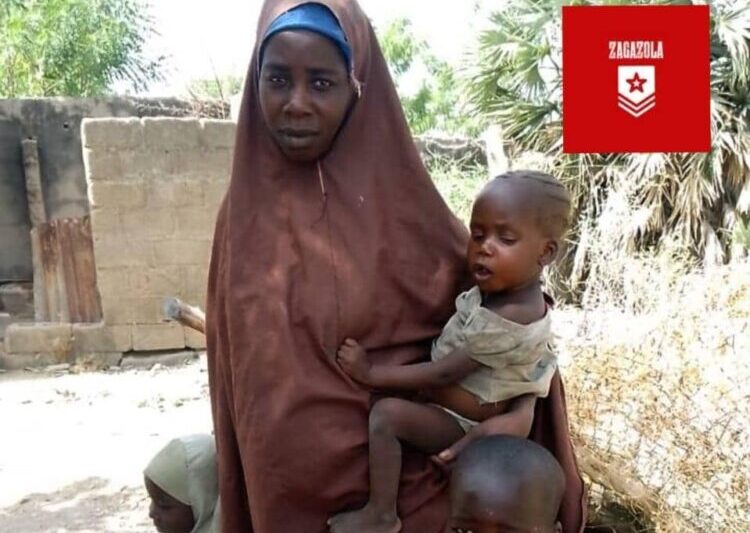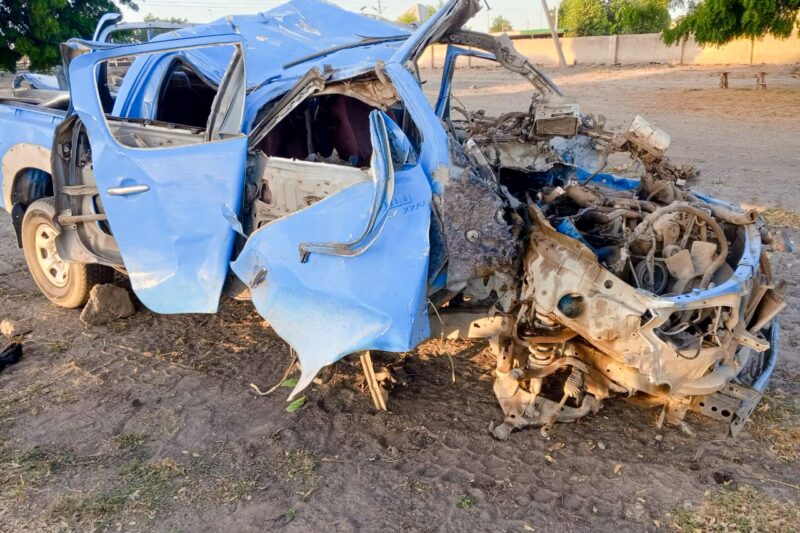Education is recognised as a fundamental human right but gender inequality is high in Nigeria and it is the boys, usually, who make it through secondary school and receive tertiary education and it is the girls who often have little learning, face challenges that prevent them from accessing schooling and are left behind.
As schools reopened in Dikwa this week, Bazannah Mustapha, the district head, had a message for parents. He emphasised the importance of girls getting a good education, saying it was the parents’ duty to ensure that their daughters were well schooled and that they were able to attend tertiary institutions.
“We need more women professionals, especially in the health sector.”
He said that many girls were deprived of the opportunity to advance their studies after completing primary and junior secondary school.
So, instead of empowering them with knowledge so that they could become who they really wanted to be, their dreams were killed at an early age, he said, adding that most girls never achieved self-actualisation.
“I want our daughters to study and become professionals in different fields as girls in other countries do. I believe they can make us proud if we pave the way for them to thrive. We need to understand that the world has changed. Education is not meant just for males, rather it is for both genders. We should encourage our daughters and give them the necessary support to get an education. It is important for all of us,” he said.
Mustapha said that parents whose daughters had completed their secondary school should support them to study gynaecology and other health-related courses at the university and other higher education institutions. He said both religious and secular education were important for girls.
“If you educate a woman it is as though you’ve educated the world,” he said. “We need more professional women.”
Malam Bakura, a father, told RNI reporter Rawa Bukar Tela that educating girls was of utmost importance and could not be overemphasised.
He used the example of women doctors, saying that most women felt more comfortable being treated by female doctors.
The Centre for African Justice, Peace and Human Rights said in a report on girls’ education that there were many barriers which kept girls from accessing education, such as child marriage, gender-based violence, a patriarchal system and traditional preferences.
Many girls were married without their consent before the age of 18, some were as young as 15.
The United Nations Children’s Fund (UNICEF) said child marriage was often driven by poverty and had many effects on the girl’s health, including increased risk for sexually transmitted diseases, cervical cancer, death during childbirth and obstetric fistulas. There was also an increased risk for premature birth and of newborns dying.
According to the World Health Organisation, the complications of pregnancy and childbirth were the leading causes of death in young women aged between 15 and 19.
The Kalu Institute, a humanitarian aid studies centre, said in countries affected by conflict, such as northeast Nigeria, girls were more than twice as likely to be out of school than girls living in non-affected countries.
It said pervasive gender ideologies at the household and community levels often favoured boys over girls and promoted differential education opportunities and outcomes.
More was needed to be done to improve infrastructural deficiency and teacher professional development – and there was a need to create awareness to encourage parents and others to prioritise the education of girls.
The institute recommended that the Nigerian government should create poverty alleviation programmes to ensure girls would be provided with a safe and supportive educational environment that was free from abuse. It said early marriage should be abolished.
The Centre for African Justice, Peace and Human Rights said the patriarchal system in Nigeria decided the hierarchy of roles for men and women. It was a system that considered women as intrinsically inferior to men which was the main cause of gender inequality. A commonly held belief was that girls belonged at home to learn and carry out domestic responsibilities. As a result, Nigerian schools from primary to tertiary level were dominated by males.
Another factor was that many parents were fearful of sending their daughters to school because of the frequent attacks on schools and the abductions of female pupils.
In 2014 the extremist group, the Jamā’at Ahl as-Sunnah lid-Da’way Wa’l-Jihād (JAS), more commonly referred to as Boko Haram, abducted 276 schoolgirls from Chibok in Borno State, causing global outrage and wide-spread criticism. About 100 girls are still missing.
The attacks had affected access to basic education significantly.
In addition, girls often had to walk long distances to school which put them at risk of gender-based violence, including sexual harassment, rape and exploitation.
It said such forms of violence also increased the risk of teenage pregnancy and led to a further decrease in girls attending school.
The centre said that it should not be forgotten that the girls of today would be the mothers of tomorrow’s generation, making education a significant part of their life.








